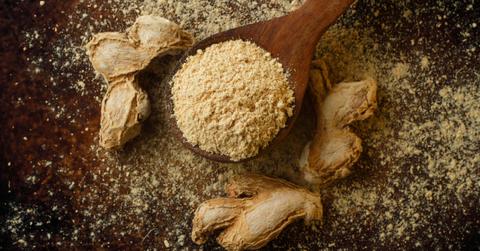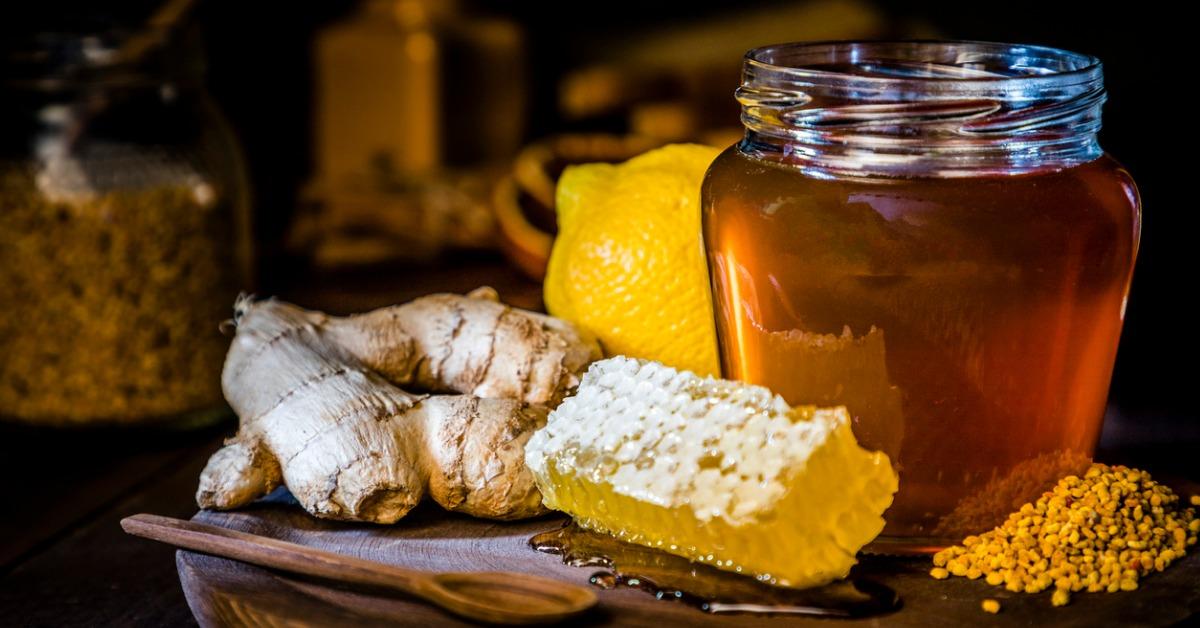Exploring the Many Health Benefits of Ginger
Updated Nov. 11 2020, 11:33 a.m. ET

Ginger has been used as a culinary spice the world over for thousands of years. It’s a staple of Southeast Asian cuisine and a featured ingredient on The Great British Baking Show. It’s unique, slightly tangy taste and versatility makes it an essential piece of the puzzle in a number of dishes. But like many strong flavors, ginger can also be a bit divisive.
Whether you love ginger like I do or simply tolerate it in your favorite cocktails, there’s no denying how much this righteous rhizome has impacted world culture. Ginger’s telltale zing also comes jam-packed with a host of health benefits, which many people might not be aware of.

What is ginger?
Ginger, as we know it, is the root portion of a flowering plant that originated in Southeast Asia. It belongs to the Zingiberaceae family, and it’s closely related to other spices like turmeric, cardamom, and galangal, all of which are also used in a host of Asian and Southeast Asian dishes. It is sold fresh, dried, powdered, pickled, as a juice, or as an oil, and it’s so flavorful that any of these options will likely add the proper amount of zing to any recipe.
What is ginger used for?
Ginger is not only used in food; it is a common ingredient in cosmetics and medicinal products as well. Its unique flavor and fragrance comes from the oils within the root itself, and the most important and efficacious of these is gingerol. Gingerol has powerful anti-inflammatory and antioxidant effects. Some studies indicate that ginger may even help reduce oxidative stress, which occurs when you have too many free radicals in your body.
These medicinal qualities have been known throughout the world for centuries. Ginger is the main component in various forms of traditional or alternative medicine. It can help you to fight off the flu virus and the common cold.
Can ginger be used to treat nausea?
Ginger appears to be highly effective against several different types of nausea. Ginger ale, in particular, has been recommended by grandmothers to soothe rumbly tummies for decades. Recent studies have shown that ginger may also help relieve nausea and vomiting for those undergoing certain types of surgery or those who might be suffering from chemotherapy-related nausea.
One of ginger’s most effective uses is treating pregnancy-related nausea, otherwise known as morning sickness. Many women have cited it as effective in the first trimester, specifically. A mere 1 to 1.5 grams is more than enough to calm the sensation, but you should always talk to your doctor before taking any large amounts of the stuff.
Can ginger help with weight loss?
A 2019 study concluded that some ginger supplementation significantly reduced body weight, especially in the waist and hip areas. Other studies indicated that ginger might even be effective in reducing both body mass index (BMI) and the blood insulin levels specifically attributed to obesity. Ginger is certainly not a weight loss miracle drug though, and much more research is needed.

Is ginger good for my blood?
In tandem with the theories about weight reduction, ginger is now being sought after for its potential anti-diabetic properties. You may have heard that it is good for circulation — shamans and medicine men have believed this for centuries — but now we are beginning to understand how these health benefits can aid those with unregulated blood sugar levels. Again, more research will be needed before this benefit can be stated definitively.
Ginger might also be helpful in lowering high levels of LDL or bad cholesterol, thereby minimizing the risk of developing heart disease. A 2018 study showed that the 30 people who received 5 grams of ginger-pasted powder each day saw their bad cholesterol levels drop by 17.4 percent over a 3-month period. Frankly, these are fairly high doses of ginger, so a more tempered study may be necessary to verify this effect as well.

Can ginger fight infections?
Gingerol, the main component in ginger has been shown to lower the risk of infections by inhibiting the growth of certain types of bacteria. Its anti-inflammatory properties have proven to be effective against oral bacteria that cause inflammatory gum diseases like periodontitis and gingivitis. Traditional and natural healers have used ginger in concert with garlic and other antibacterial plants to help treat wounds and stop the spread of surface infections as well.

Is ginger good for your bones?
Ginger isn’t just good for blood circulation and keeping free-radicals out of your body. There is proof that it has been helpful in soothing, though not curing, osteoarthritis. Joint pain and stiffness are common symptoms of this joint degenerating condition. However, those who took ginger noted that its anti-inflammatory effects were most helpful in temporarily reducing pain, specifically in the knees.
Whether you like it heaped on your sushi or steeped in tea, ginger is going to enhance flavor and biological function in equal measure. If you're not a big fan of the flavor, there are plenty of ginger supplements available in pill form as well.